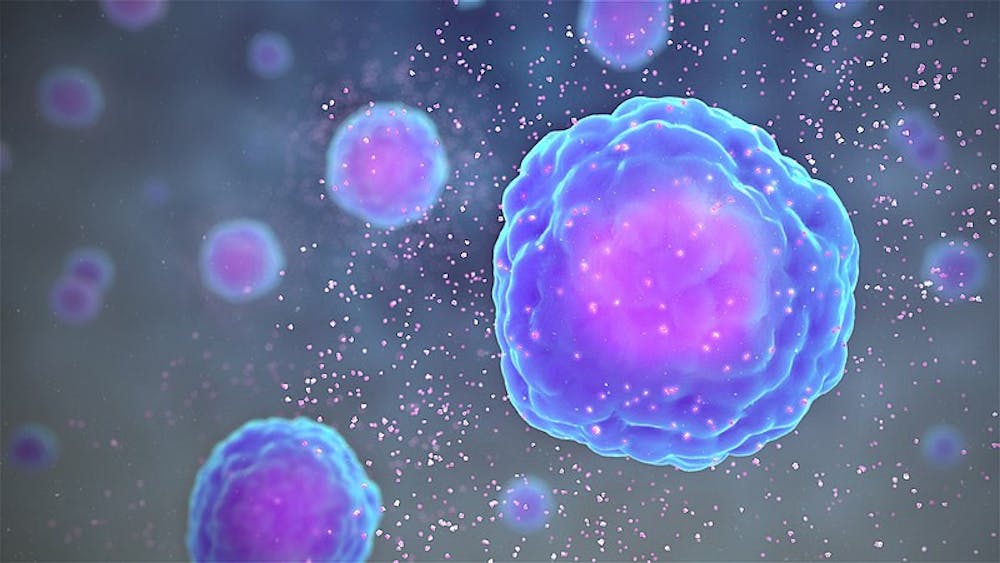While work and family typically remain separate, in times of emergency this can be an impossible boundary to hold. A husband and wife duo of Hopkins professors know this all too well – personal tragedy pushed them to work on developing a drug together.
Dr. Sujatha Kannan and her husband Kannan Rangaramanujam have lost four close family members to the COVID-19 pandemic. However, the two are still working to improve treatment for future patients with the development of a COVID-19 anti-inflammatory they refer to as OP-101.
Kannan is a professor of anesthesiology and critical care medicine at the School of Medicine and a research scientist at the Hugo W. Moser Research Institute at the Kennedy Krieger Institute. Rangaramanujam is a professor of ophthalmology and a co-director of the Center of Nanomedicine at Wilmer Eye Institute at the School of Medicine.
The couple worked together during development, with Rangaramanujam focused on the nanotechnology of the drug and Kannan taking the research from the lab bench to human trials.
COVID-19’s effect on the respiratory system is driven by an immune response called the cytokine storm. A cytokine storm is an instantaneous increase in the number of cytokines, a type of signaling molecule, that lead to particular biological activities. In this case, the cytokines lead to an invasive inflammatory immune response, which can lead to lung inflammation or organ failure. With severe respiratory failure, the afflicted person may pass away.
OP-101 was designed to treat this severe inflammation. The main parts of OP-101 that treat the inflammation include an antioxidant called n-acetyl cysteine and a dendrimer. A dendrimer is a synthetic nanoparticle that carries n-acetyl cysteine to macrophages. In an email to The News-Letter, Rangaramanujam noted that OP-101 works to deactivate these cells.
“Hyper-inflammation associated with reactive macrophages in the lung and rest of the body is the major consequence of COVID,” Rangaramanujam wrote. “So, our nanomedicine approach that targets the reactive macrophages is a good one.”
One of the main challenges was making sure that manufacturing of OP-101 stays consistent and that OP-101 is being properly developed. Kannan explained that the researchers had to develop the drug itself along with the manufacturing process.
“We had previously made sure that OP-101 was being made in a consistent manner in the labs and that it had undergone extensive pre-clinical testing in multiple models before we even considered developing it for clinical use,” Kannan wrote.
She went on to say that because OP-101 targets macrophages and the injury site, its concentration in the blood does not matter.
“For OP-101 the concentration depends on the degree of injury or the number of activated macrophages at the site of injury which is where the drug localizes, so the injury regulates the amount of drug delivered. If OP-101 is not picked up by the cells involved in the injury, it is excreted intact in the urine,” Kannan wrote.
OP-101 was tested in a trial funded by Ashvattha Therapeutics, a startup founded by Kannan and Rangaramanujam. The drug was shown to be safe during a Phase I trial. OP-101 now has to go through a Phase II trial, which requires approval from the Food and Drug Administration to progress.
Kannan noted that Ashvattha Therapeutics has plans beyond OP-101.
“We plan to focus on therapies for neurological disorders, ophthalmology and oncology using the same principles of engineering inflammation at the site of injury to deliver drugs in a targeted manner to enable repair and regeneration,” Kannan wrote.

















